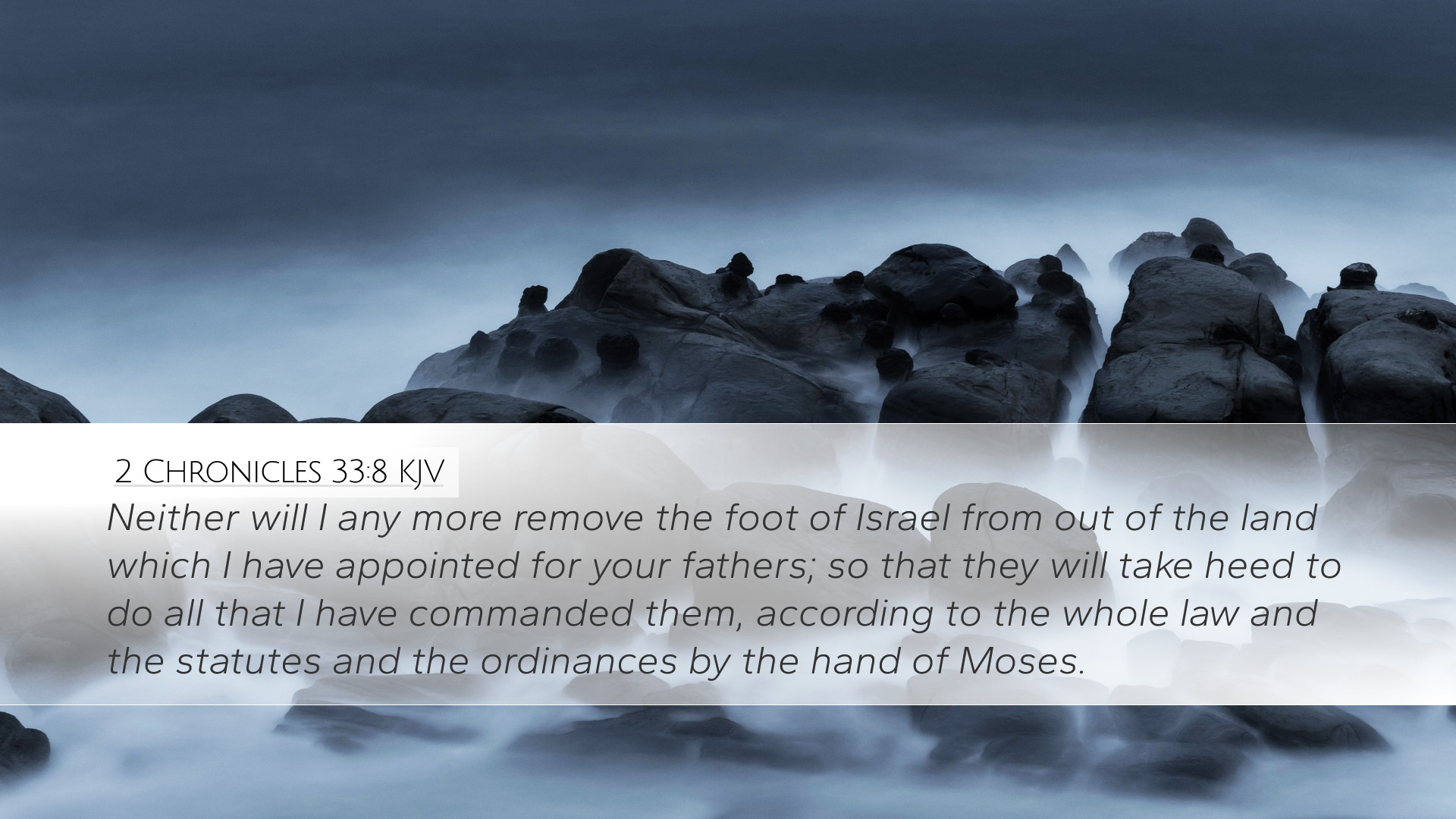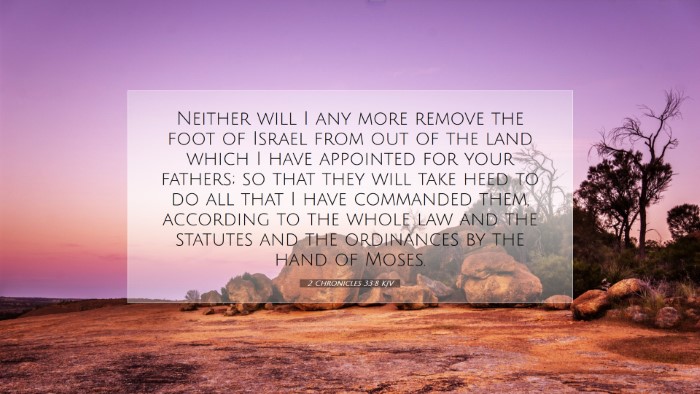Commentary on 2 Chronicles 33:8
Verse Context: 2 Chronicles 33:8 states, "Neither will I anymore remove the foot of Israel from out of the land which I have appointed for your fathers; so that they will take heed to do all that I have commanded them, according to all the law and the statutes and the ordinances by the hand of Moses."
Historical Background
This verse is situated within the narrative of King Manasseh, who is known for his extensive reign over Judah and for committing many abominations against the Lord. It describes the aftermath of his repentance and restoration. His reign provides a stark contrast between righteous leadership and the consequences of sin, coupled with the mercy of God. The context allows readers to understand the depth of divine grace even amid severe transgression.
Theological Insights
Divine Mercy:
This verse encapsulates God's promise of preservation. As Albert Barnes notes, despite the people's prior unfaithfulness, God’s commitment to His promises remains intact. His assurance to “not remove the foot of Israel” illustrates how committed God is to His covenant people.
Conditions of Faithfulness:
The phrase "so that they will take heed to do all that I have commanded them" emphasizes the active role of obedience in maintaining God’s favor. As reflected in Matthew Henry’s commentary, this highlights both the grace of God's promise and the responsibility of the people to adhere to God's covenant stipulations. It underscores a biblical principle: while God is faithful, His people are called to respond in obedience.
Applications for Pastors and Theologians
- Encouragement in Repentance: Manasseh's story serves as a powerful reminder that no one is beyond the reach of God's grace. Pastors can use this narrative to encourage congregations that true repentance leads to restoration.
- Importance of Obedience: The link between divine promise and human responsibility can inform preaching and teaching, fostering a deeper understanding that faith without works is dead (James 2:26).
- Understanding of Covenantal Grace: The unconditional nature of God's promise invites deeper reflection on the dynamics of grace in relationship to the law. This can facilitate scholarly discussions on the interplay between grace and works in the life of believers.
Commentary Excerpts
Matthew Henry: “Herein is the comfort of every good man in this world—that God will not remove His foot from the land of His people, so long as they take heed to that which He has commanded. The mercy of God is repeated; His promise stands firm.”
Albert Barnes: “The reference is not merely to the literal land but a broader implication concerning God’s presence and favor. The 'foot' here is an image of God’s protection and support; it indicates stability, which the obedience of the people must anchor.”
Adam Clarke: “The clause speaks powerfully against the sin of the people; it was through their own neglect and disobedience that they would face challenges, not because of God’s unfaithfulness. God’s assurance exhibits His steadfastness in nurturing His children toward righteousness.”
Conclusion
2 Chronicles 33:8 not only serves as a testament of hope and restoration but also highlights the balance between divine grace and human responsibility. In reflecting on this verse, scholars, pastors, and students should find inspiration in the idea that God’s commitments endure, urging a response of fidelity to His commands. This narrative ultimately leads to a greater understanding of God’s character and His dealings with humanity, encouraging a lifelong pursuit of holiness and obedience among believers.


